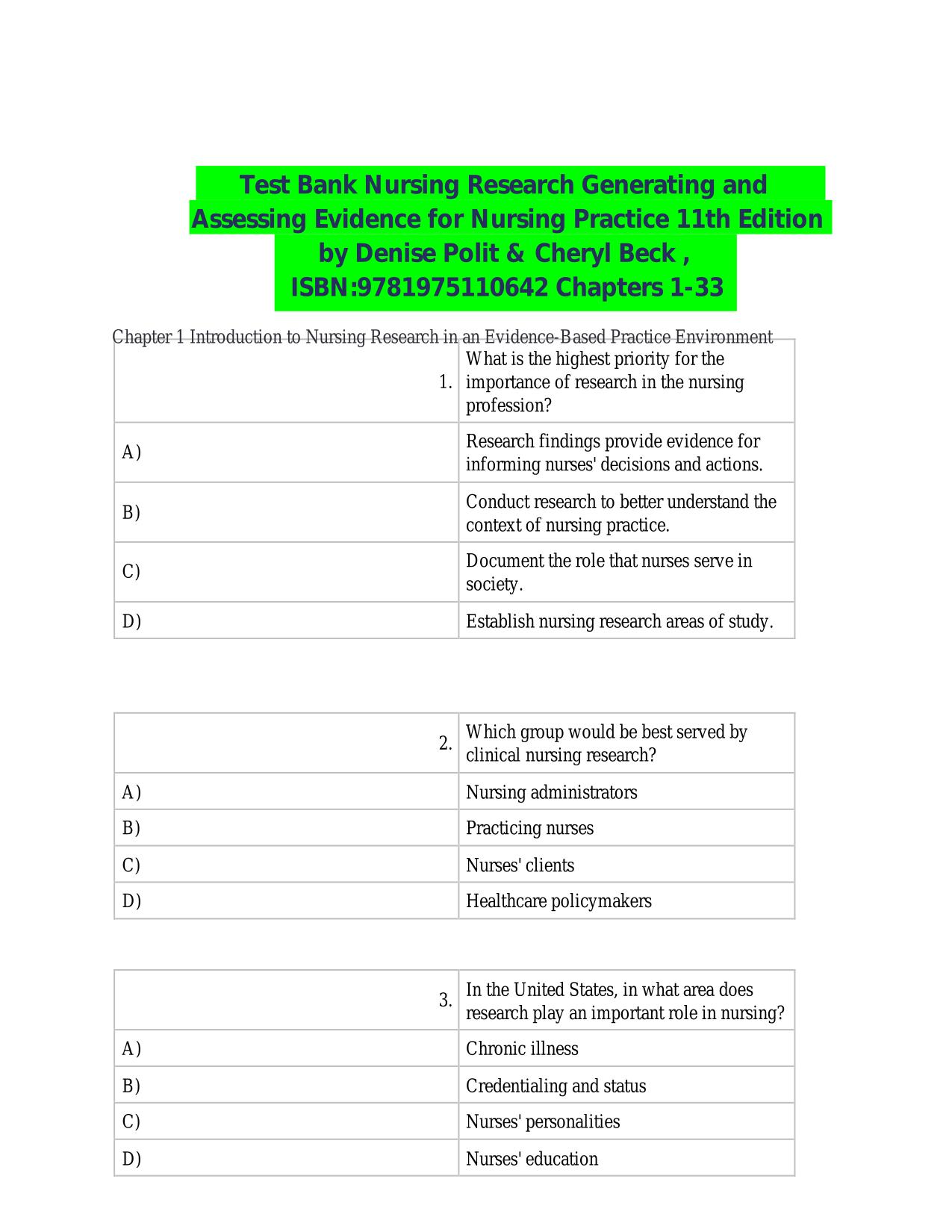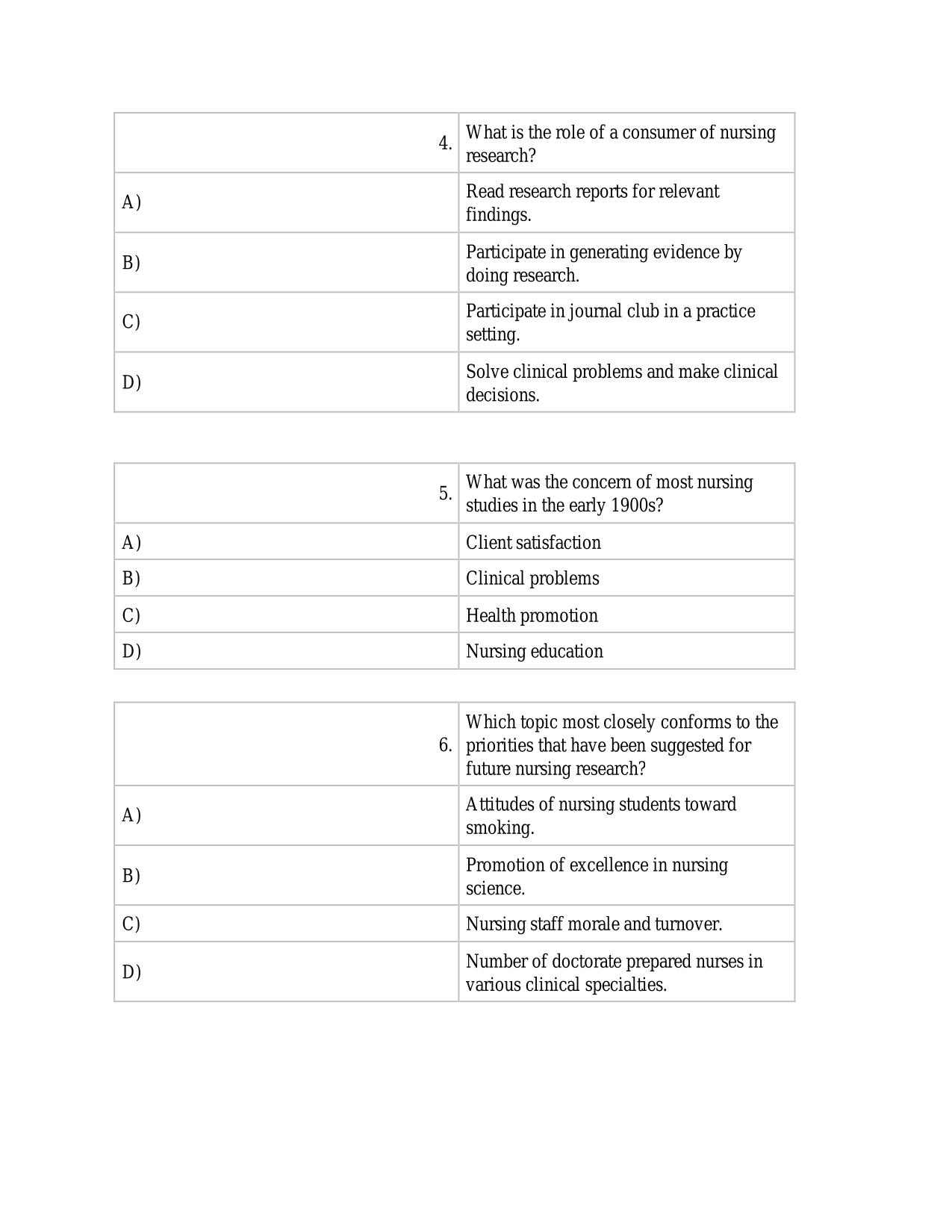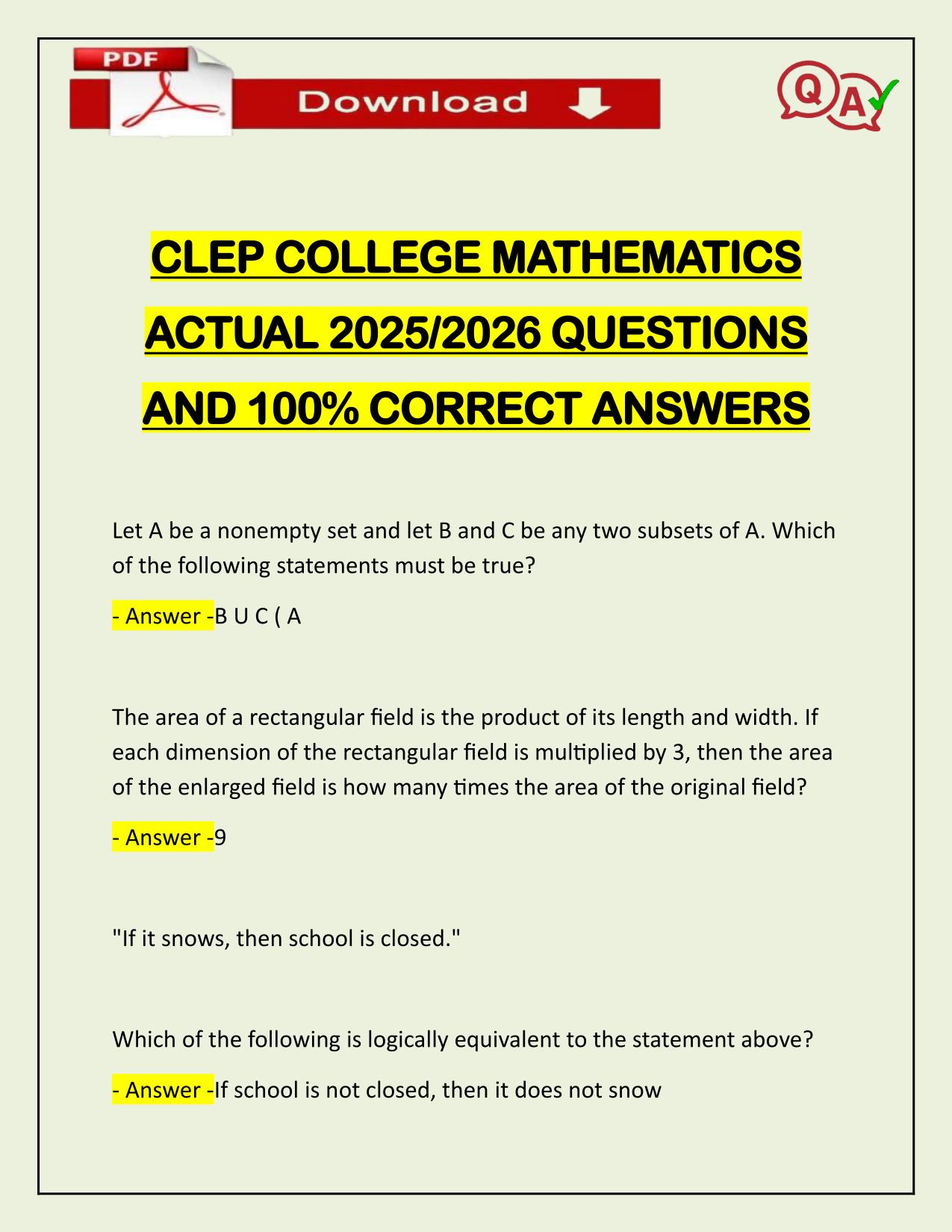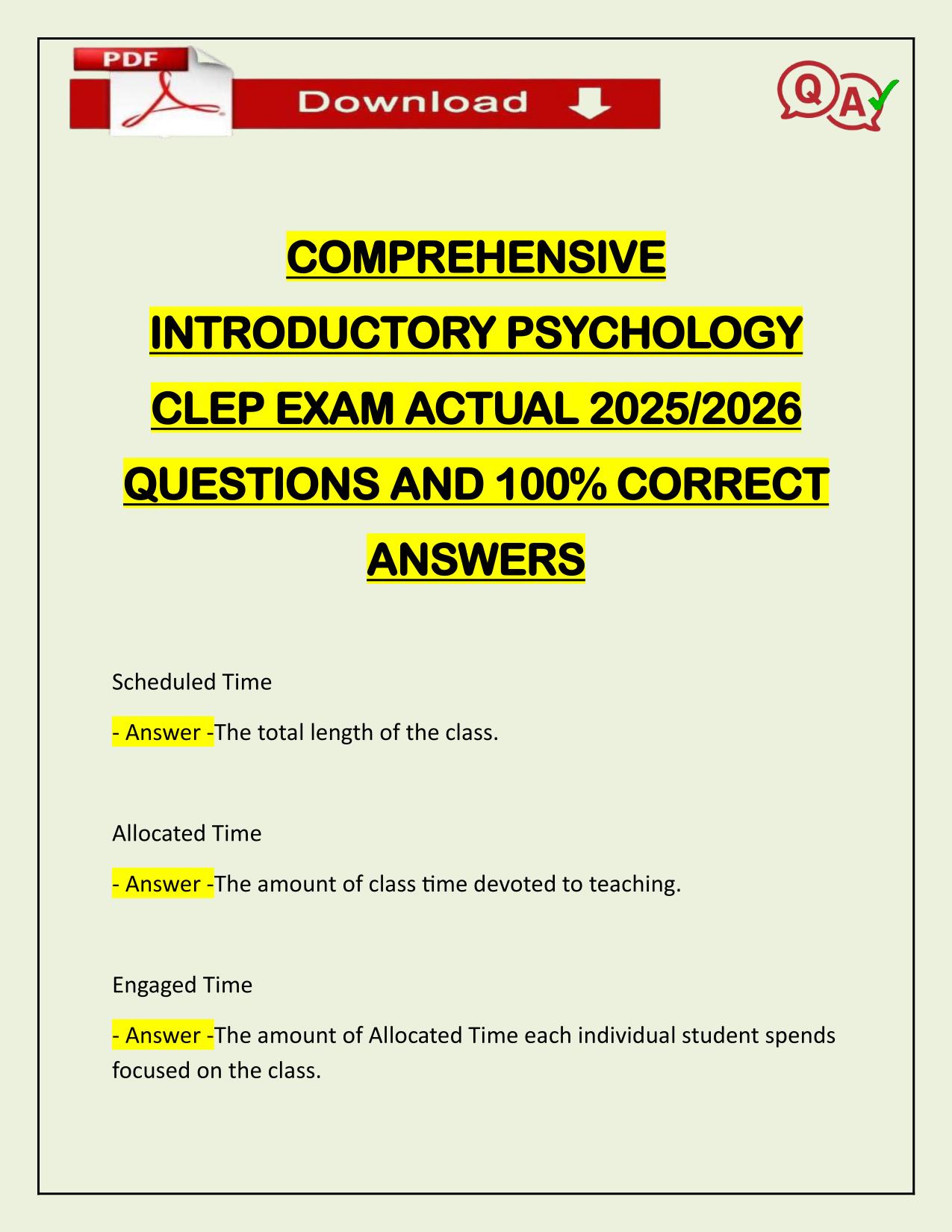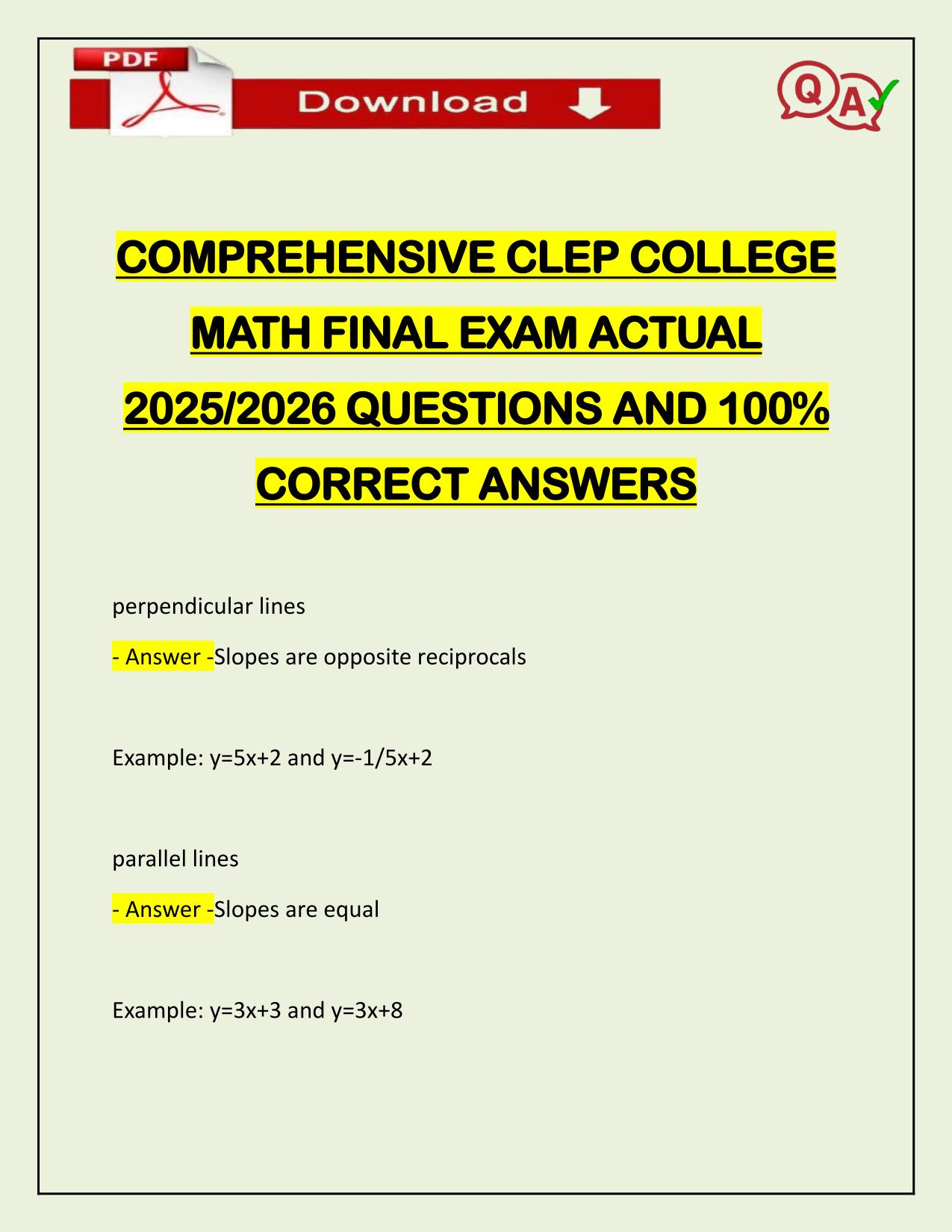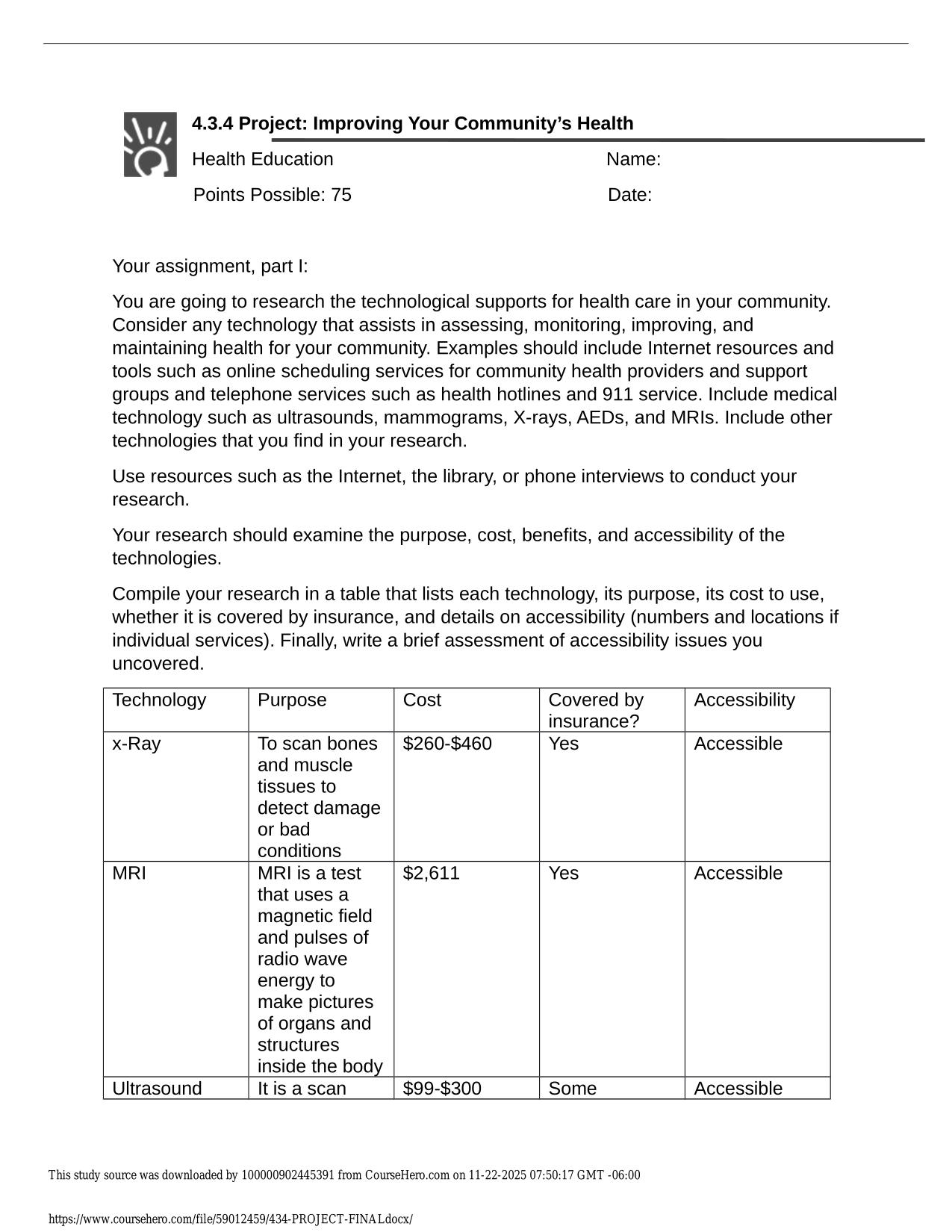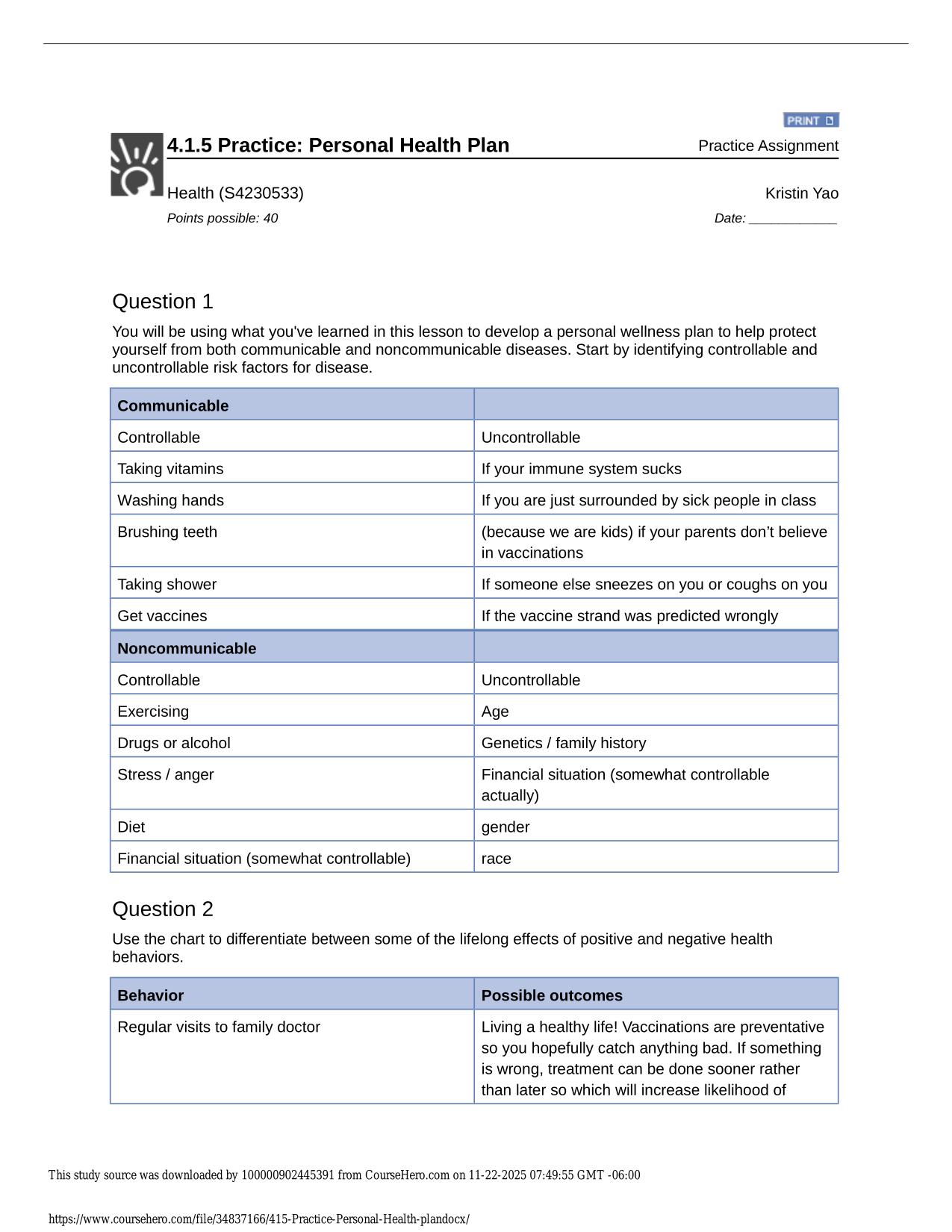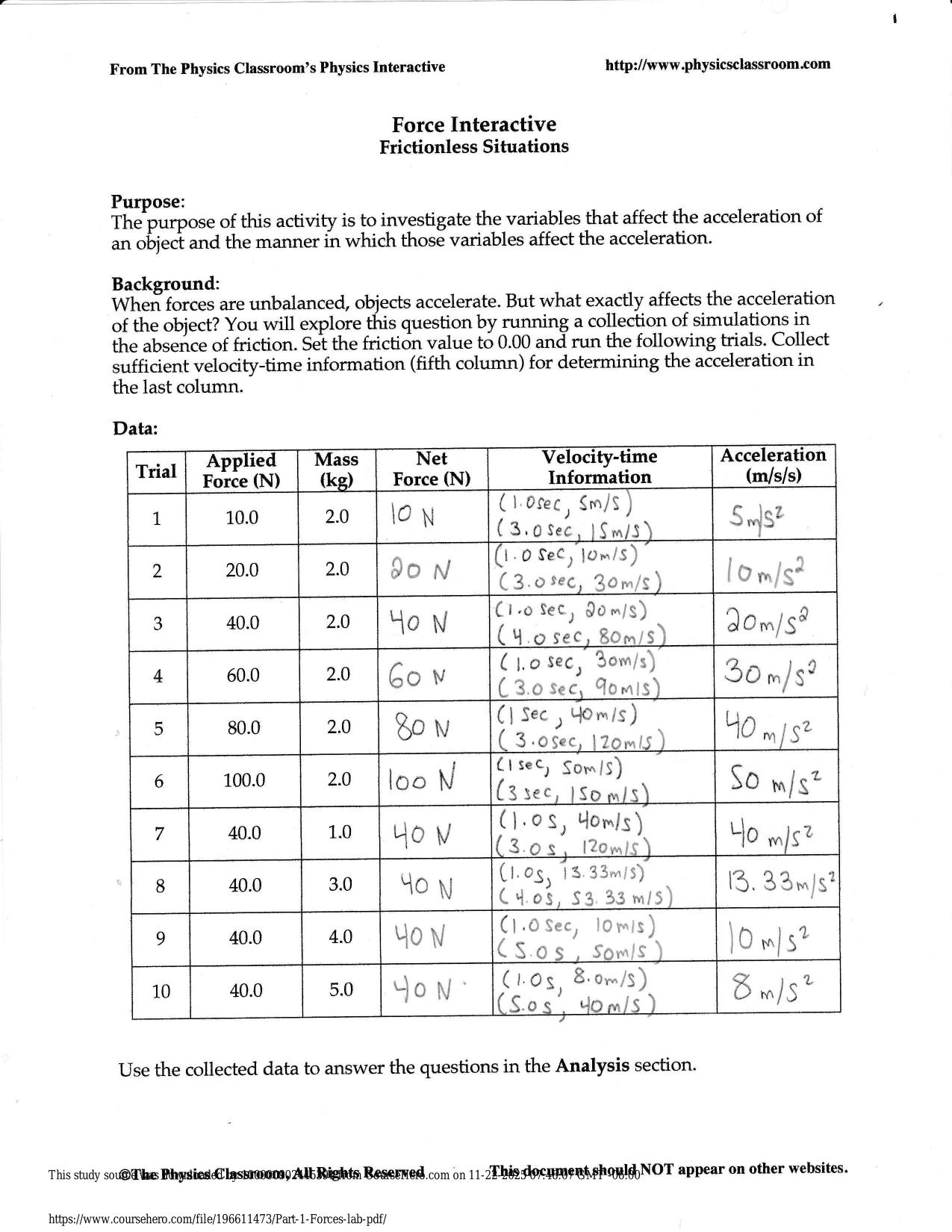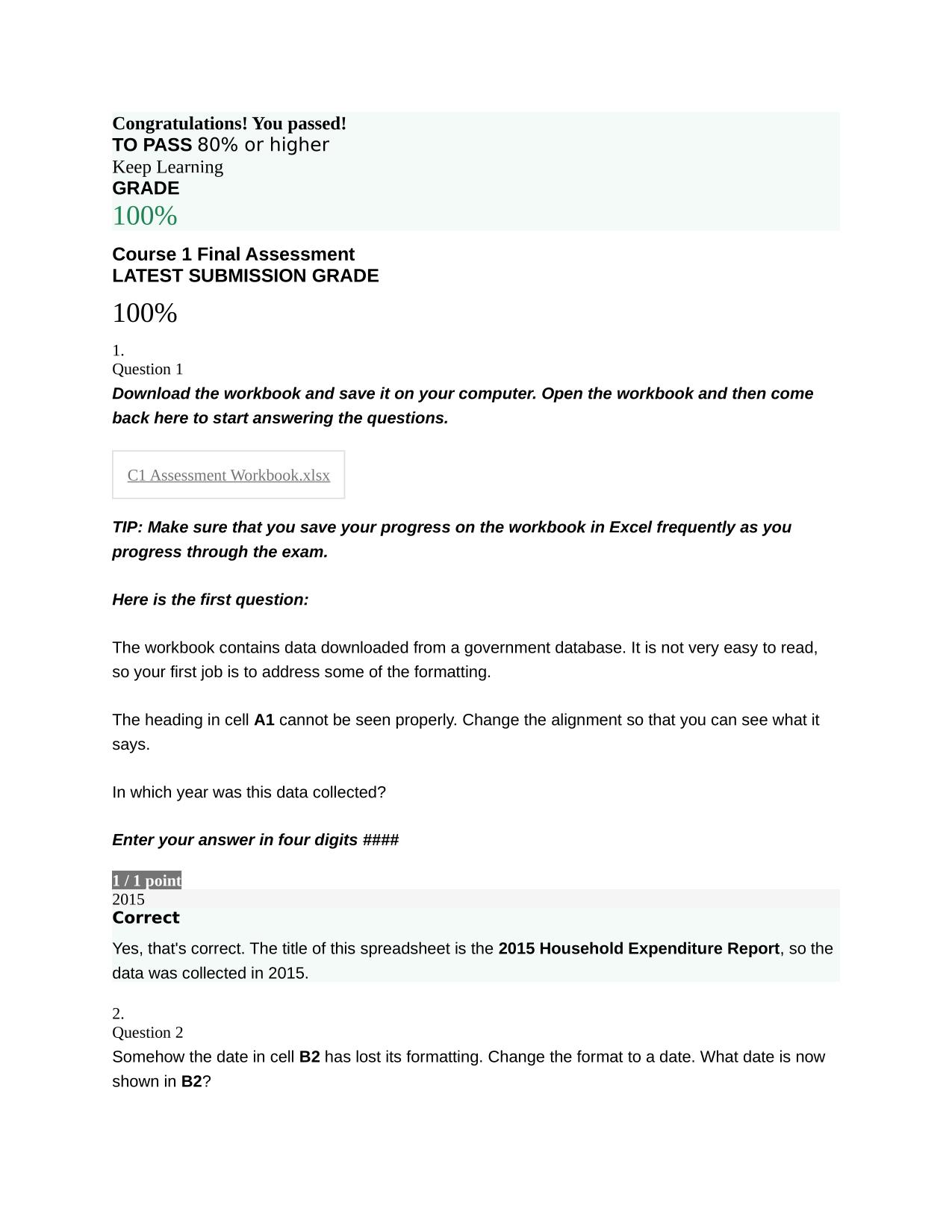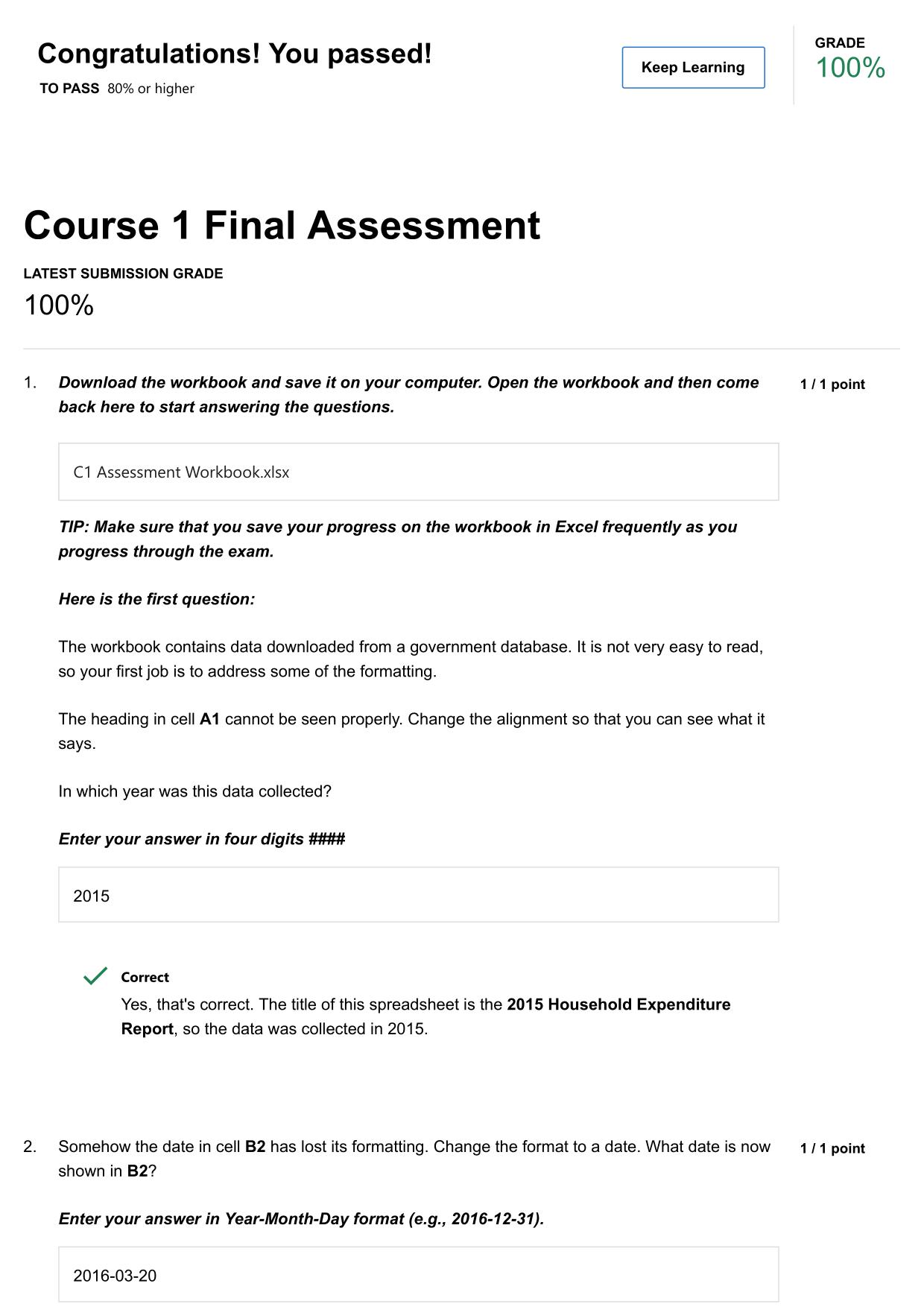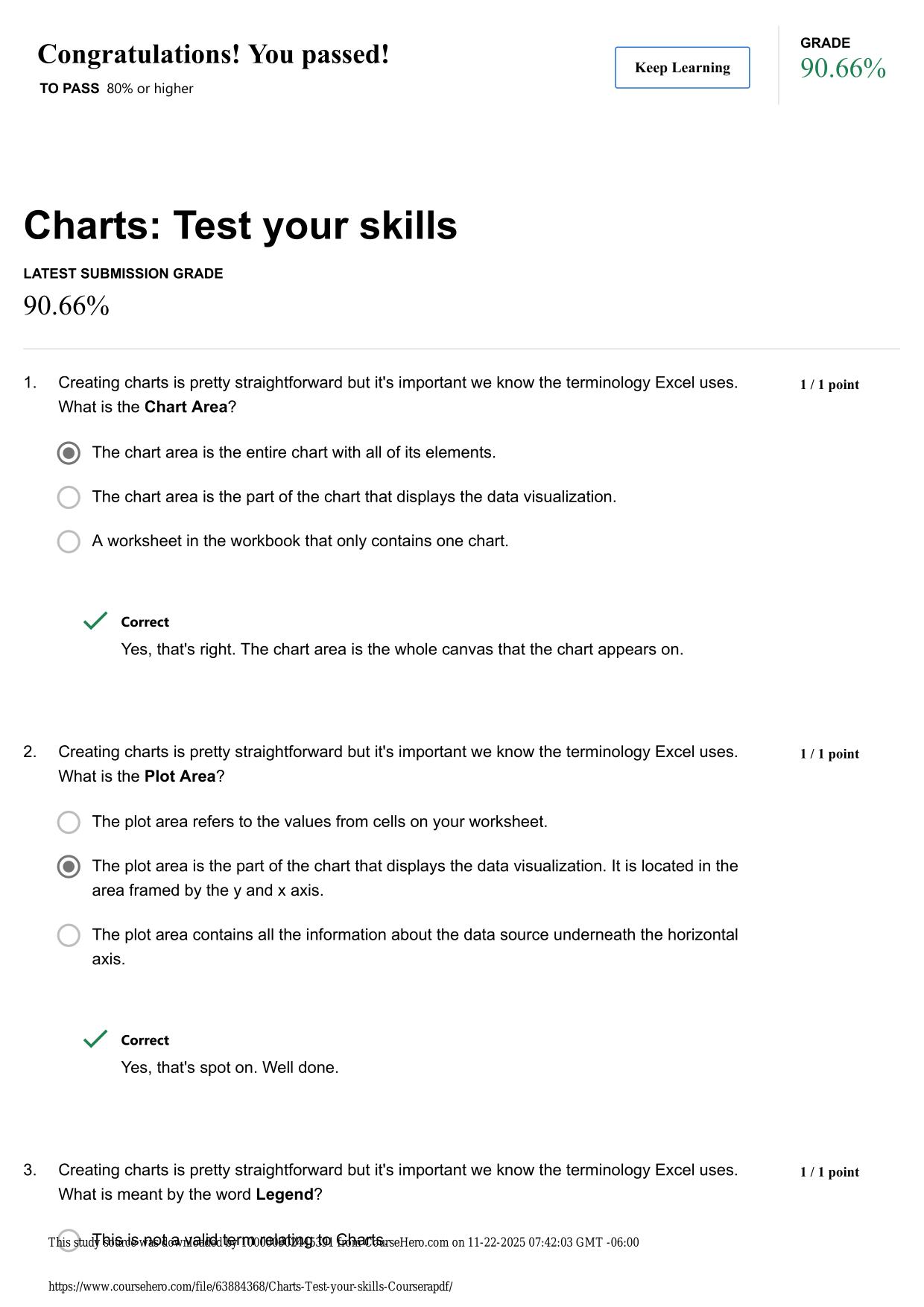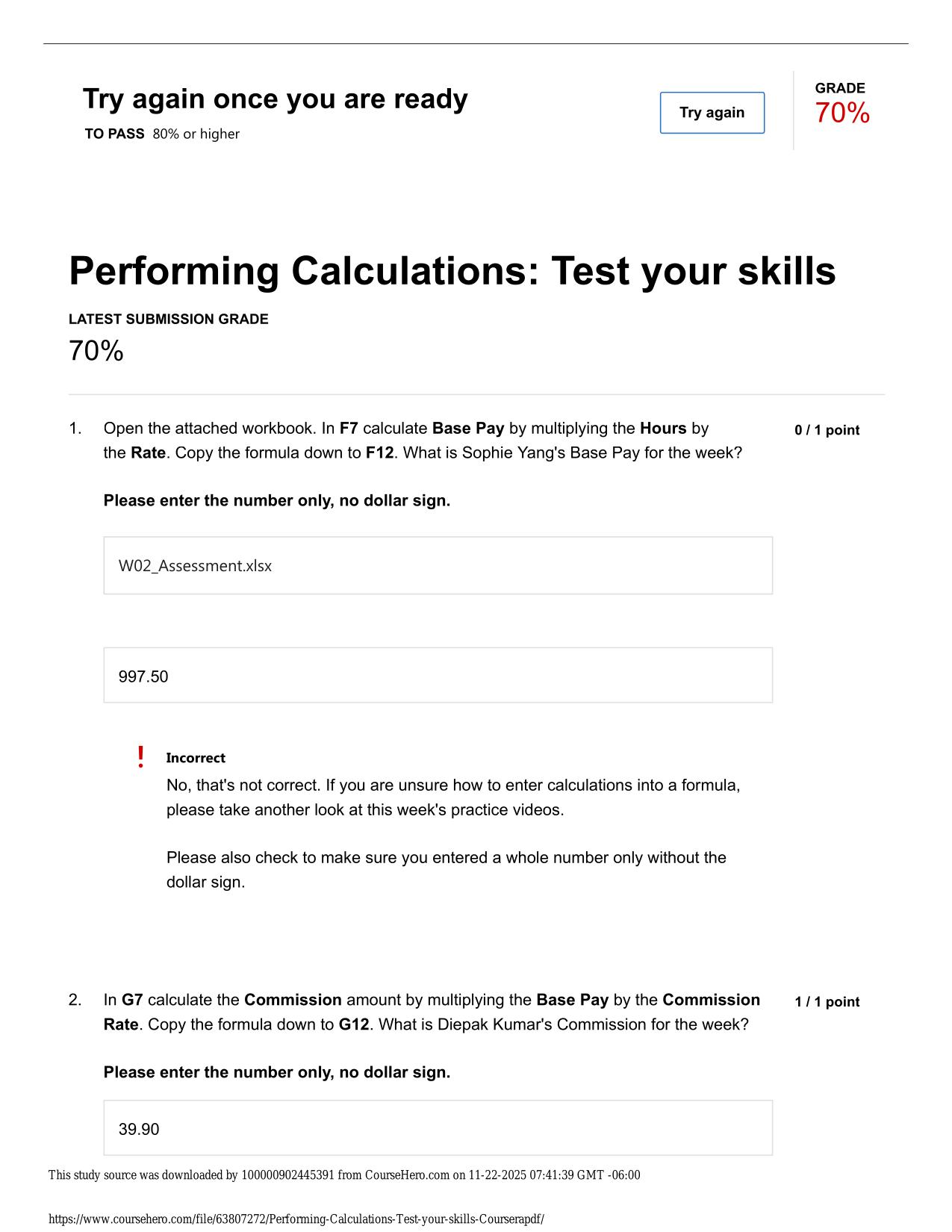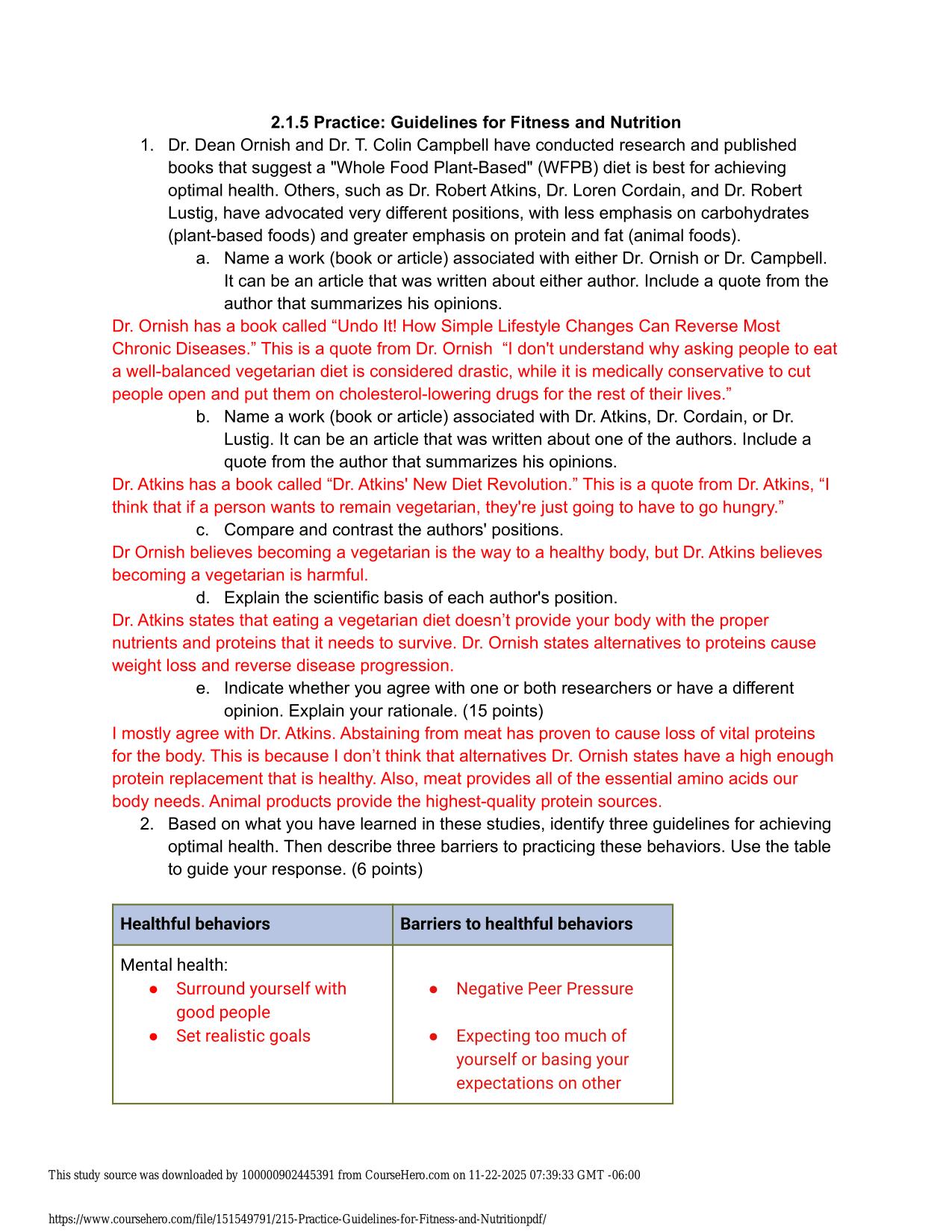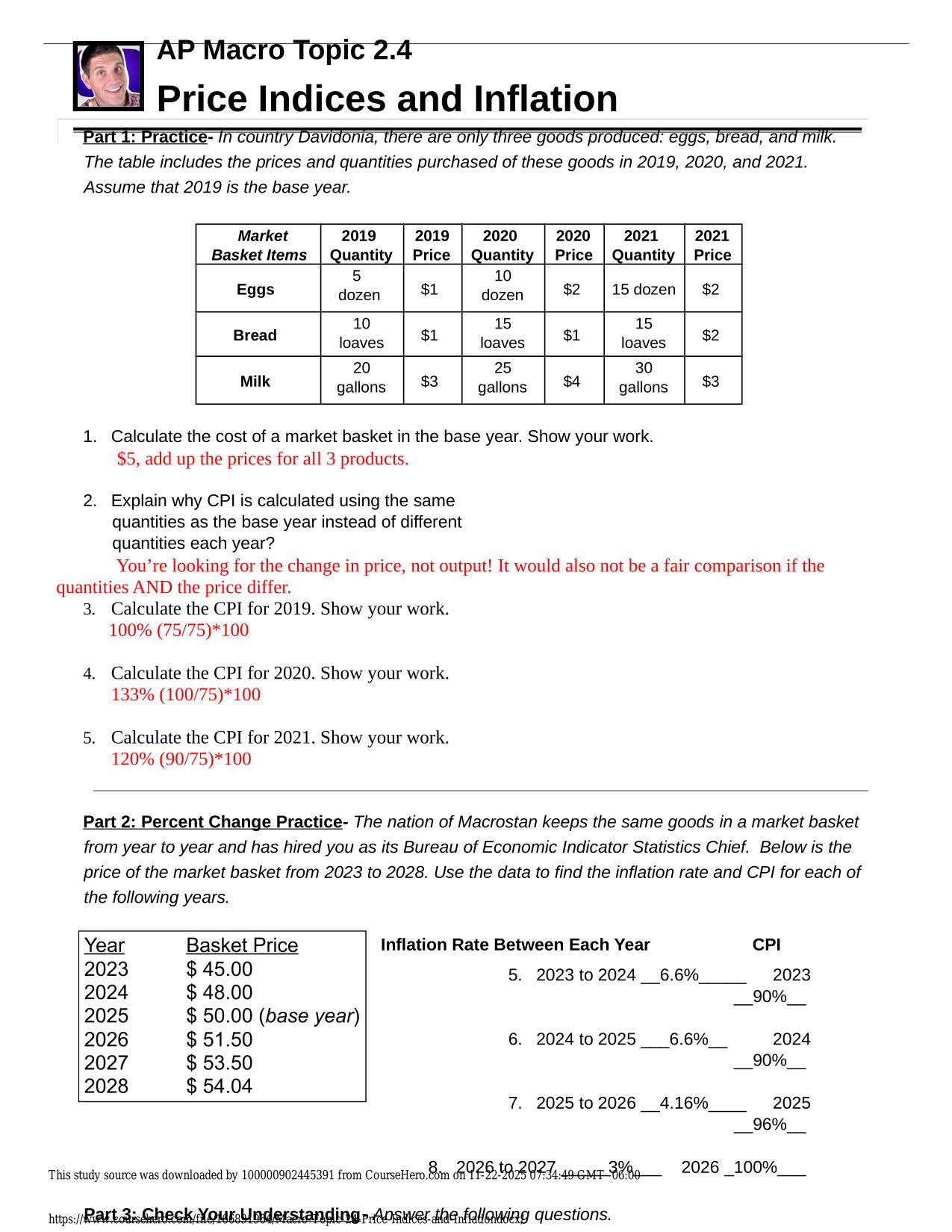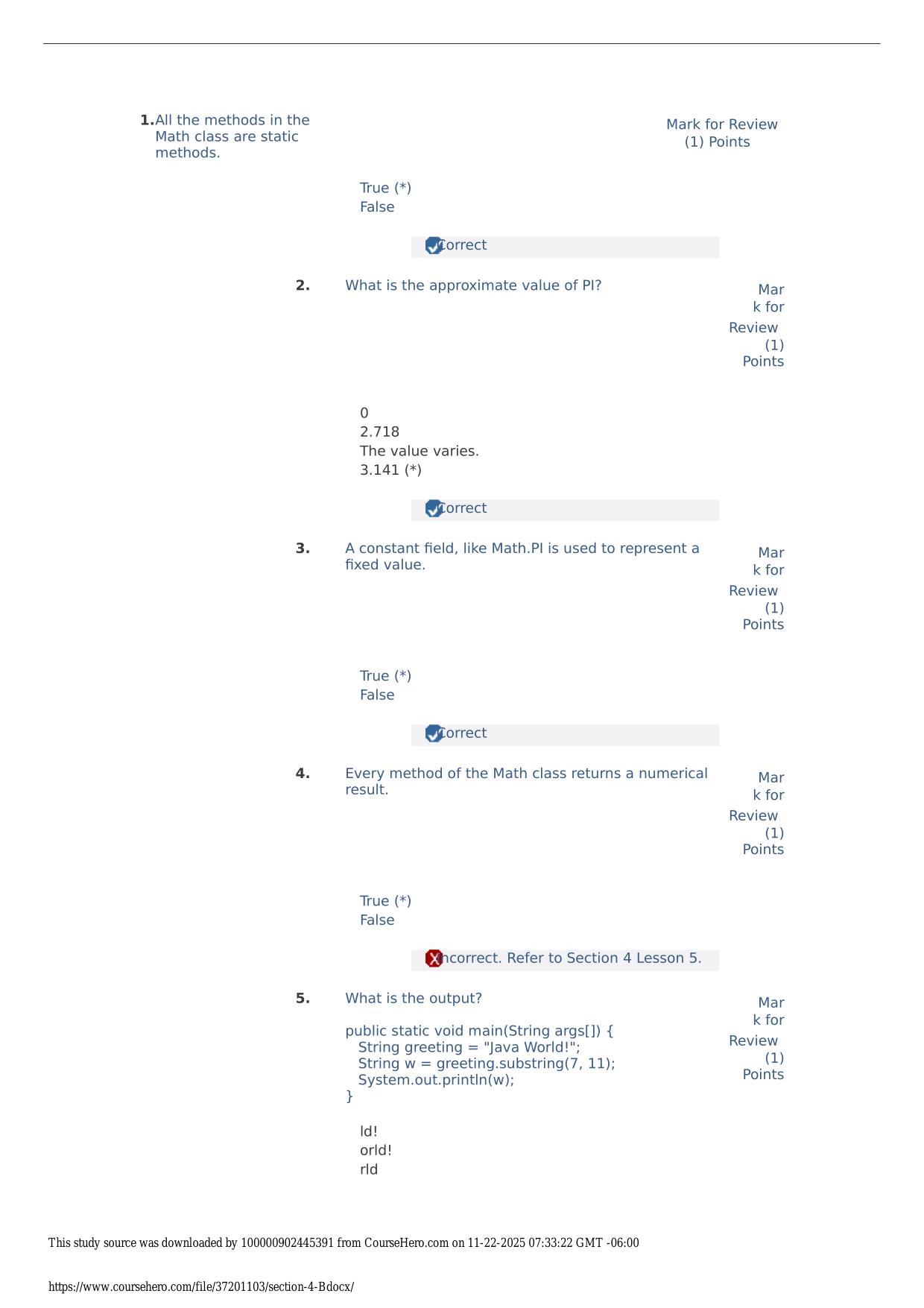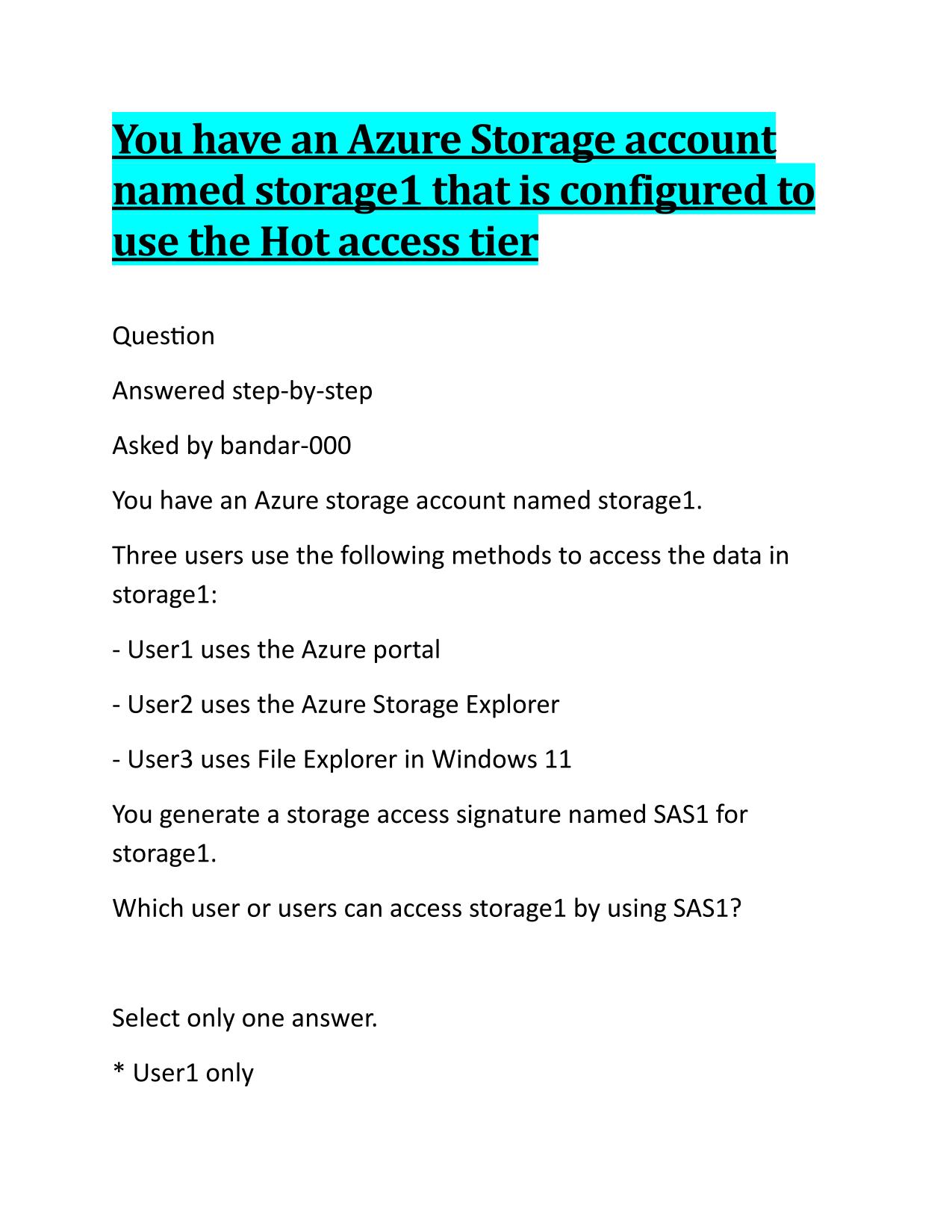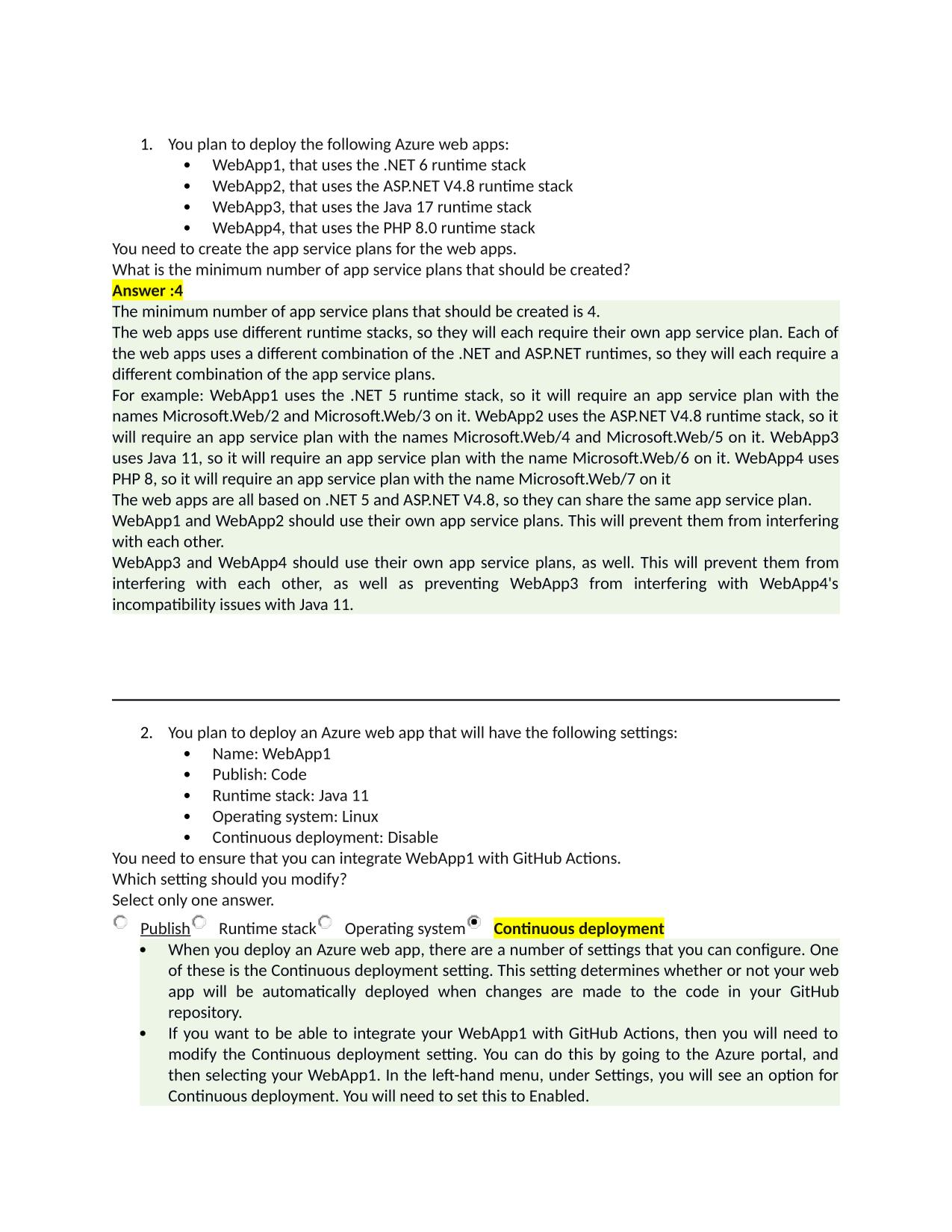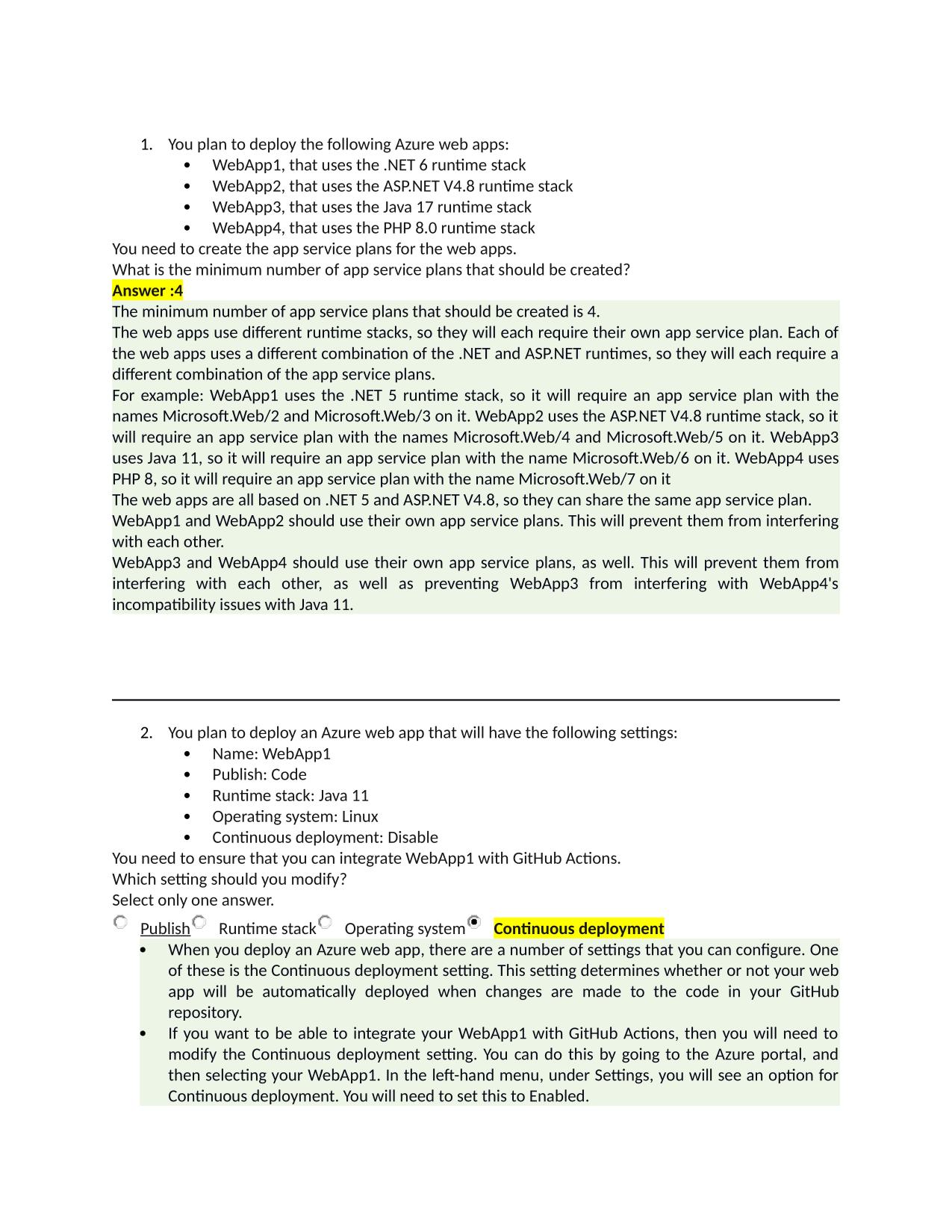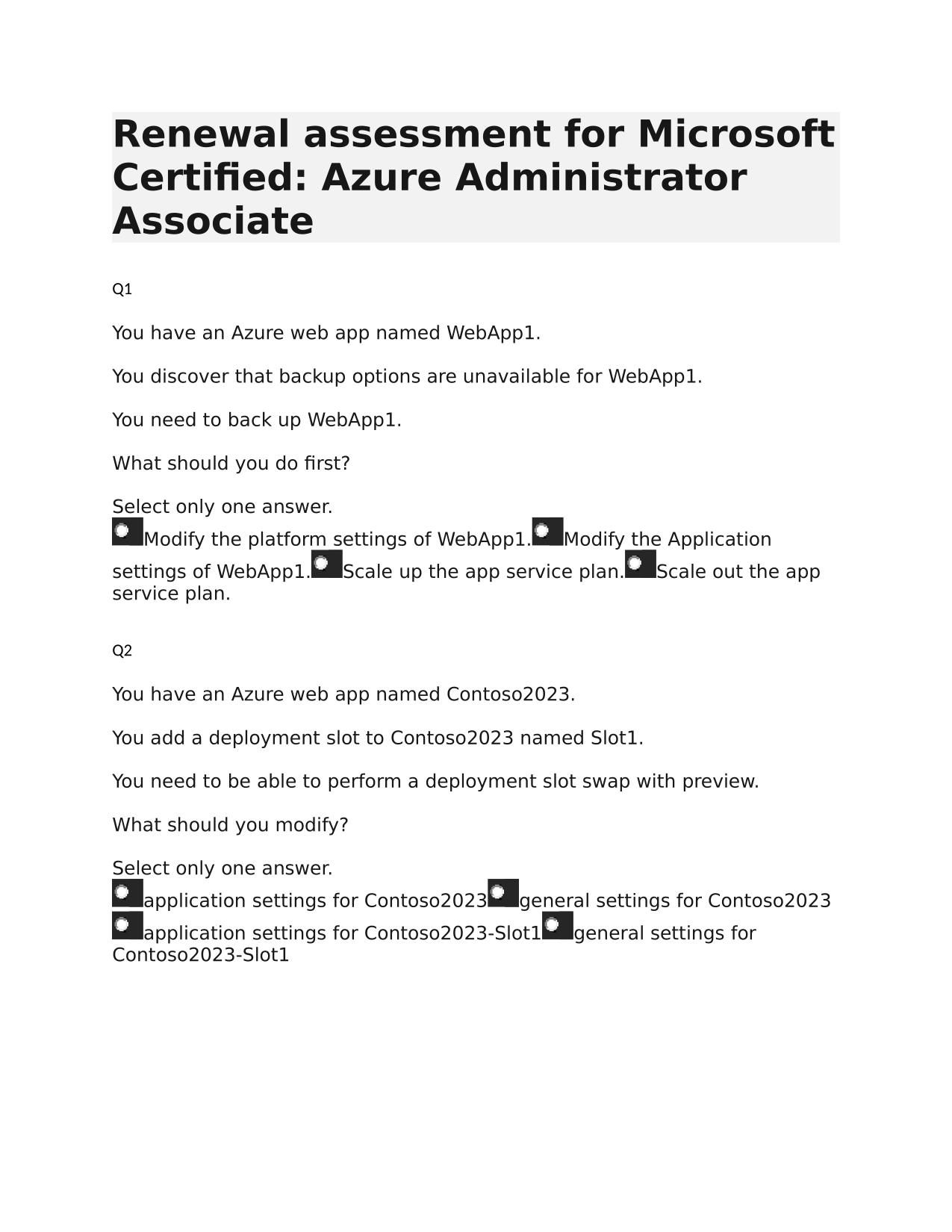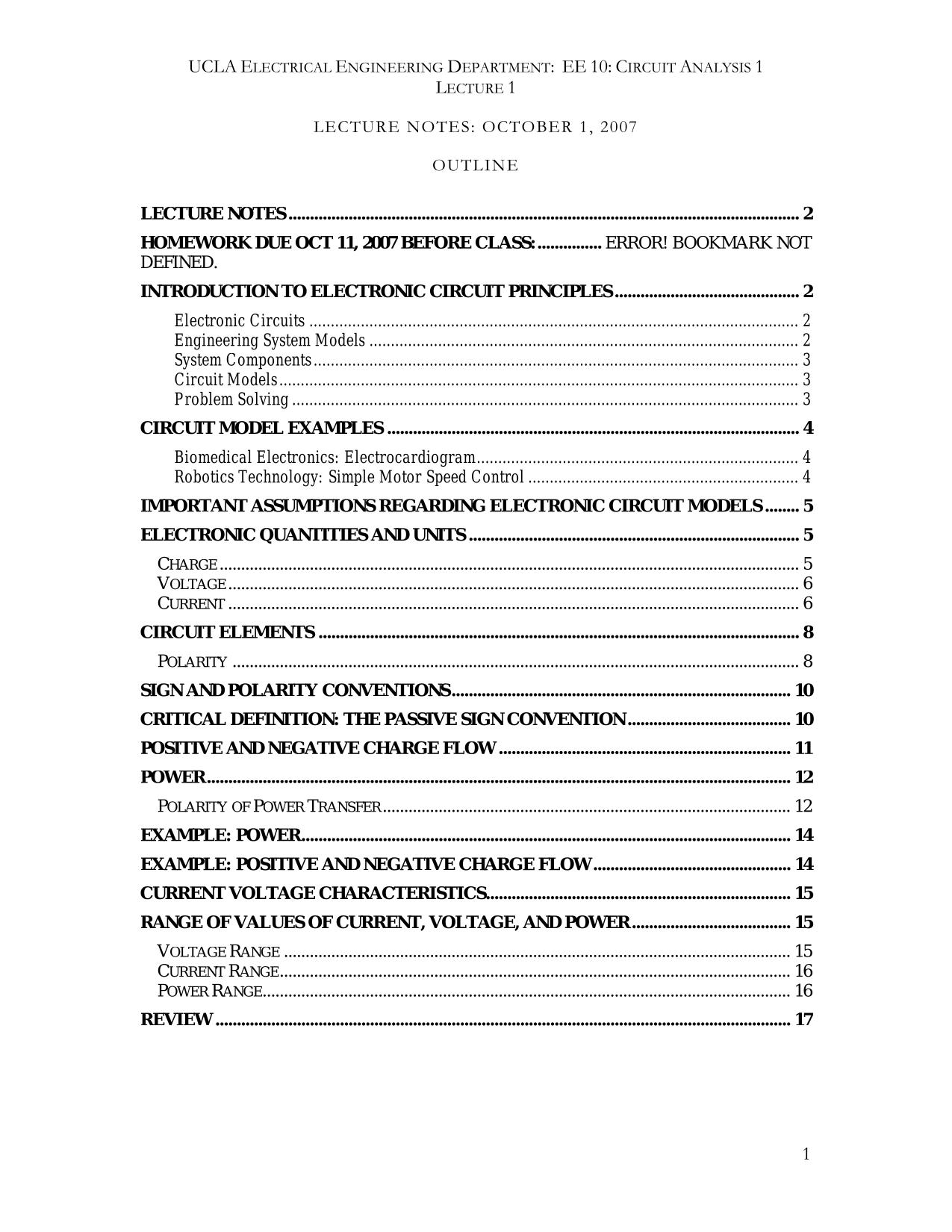Test Bank Nursing Research Generating and Assessing Evidence for Nursing Practice 11th Ed by Denise Polit & Cheryl Beck ISBN 9781975110642
Course:
Nursing Practice
Institution:
Nursing Practice
Test Bank Nursing Research Generating and Assessing Evidence for Nursing Practice 11th Ed by Denise Polit & Cheryl Beck ISBN 9781975110642
After purchase, you get:
✅ Instant PDF Download
✅ Verified answer explanations
✅ Refund if not Satisfied
✅ Prepared for 2025/2026 test cycle
Overview
Every explanation is written in a clear and accessible style to support independent learning. The straightforward language makes complex topics understandable without oversimplifying important details. Students appreciate being able to study effectively without needing constant instructor guidance. The conversational tone makes the material feel like a knowledgeable friend explaining concepts rather than a dry textbook. The document introduces learners to the pacing, logic, and question flow commonly seen in Bank Nursing Research Generating and Assessing Evidence for Nursing Practice 11th Ed by Denise Polit & Cheryl Beck ISBN 9781975110642 assessments. You'll develop a natural rhythm for working through questions efficiently without rushing. Many students find their timing improves dramatically after practicing with these materials under simulated exam conditions. That comfort with the pace prevents panic and helps you maintain focus throughout the entire test.
Who Is This For?
Designed for motivated learners working toward certification, licensure, or degree completion within the Nursing Practice track. People appreciate how it keeps them organized during stressful preparation periods. The systematic approach helps maintain study momentum.
Related Keywords
Detailed Study Description
Frequently Asked Questions
Document Information
| Uploaded on: | November 1, 2025 |
| Last updated: | November 17, 2025 |
| Number of pages: | 250 |
| Written in: | 2025/2026 |
| Type: | Exam (elaborations) |
| Contains: | Questions & Answers |
| Tags: | Test Bank Nursing Research Generating and Assessing Evidence for Nursing Practice 11th Ed by Denise Polit & Cheryl Beck ISBN 9781975110642 |
Seller Information

AdelineJean
User Reviews (0)
Exam (Elaborations)
$15.50
Add to Cart
100% satisfaction guarantee
Refund Upon dissatisfaction
Immediately available after purchase
Available in Both online and PDF
$15.50
| 0 sold
Discover More resources
Inside The Document
Test Bank Nursing Research Generating and Assessing Evidence for Nursing Practice 11th Edition by Denise Polit & Cheryl Beck , ISBN:9781975110642 Chapters 1-33 Chapter 1 Introduction to Nursing Research in an Evidence-Based Practice Environment What is the highest priority for the 1. importance of research in the nursing profession? A) Research findings provide evidence for informing nurses' decisions and actions. B) Conduct research to better understand the context of nursing practice. C) Document the role that nurses serve in society. D) Establish nursing research areas of study. 2. Which group would be best served by clinical nursing research? A) Nursing administrators B) Practicing nurses C) Nurses' clients D) Healthcare policymakers 3. In the United States, in what area does research play an important role in nursing? A) Chronic illness B) Credentialing and status C) Nurses' personalities D) Nurses' education 4. What is the role of a consumer of nursing research? A) Read research reports for relevant findings. B) Participate in generating evidence by doing research. C) Participate in journal club in a practice setting. D) Solve clinical problems and make clinical decisions. 5. What was the concern of most nursing studies in the early 1900s? A) Client satisfaction B) Clinical problems C) Health promotion D) Nursing education Which topic most closely conforms to the 6. priorities that have been suggested for future nursing research? A) Attitudes of nursing students toward smoking. B) Promotion of excellence in nursing science. C) Nursing staff morale and turnover. D) Number of doctorate prepared nurses in various clinical specialties. 7. What is the process of deductive reasoning? A) Verifying assumptions that are part of our heritage. B) Developing specific predictions from general principles. C) Empirically testing observations that are made known through our senses. D) Forming generalizations from specific observations. 8. What is the ontological assumption of those espousing a naturalistic paradigm? A) Objective reality and those natural phenomena are regular and orderly. B) Phenomena are not haphazard and result from prior causes. C) Reality is multiply constructed and multiply interpreted by humans. D) Reality is not fixed, but is rather a construction of human minds. 9. What is the epistemological assumption of those espousing a positivist paradigm? A) The researcher is objective and independent of those being studied. B) Phenomena are not haphazard, but rather have antecedent causes. C) The researcher instructs those being studied to be objective in providing information. Reality is not fixed, but is rather a construction of human minds. D) 10. Which is not a characteristic of traditional scientific method? A) Control over external factors. B) Systematic measurement and observation of natural phenomena. C) Deductive reasoning. D) Emphasis on a holistic view of a phenomenon, studied in a rich context. 11. What is empiricism? A) Making generalizations from specific observations. B) Deducing specific predictions from generalizations. C) Gathering evidence rooted in reality. D) Verifying the assumptions on which the study was based. 12. What is a hallmark of the scientific method? A) Infallible B) Holistic C) Systematic D) Flexible
CourseHero & Studypool Unlocks
Get Unlocked CourseHero and Studypool documents files instantly to your email, simply by pasting your link and clicking "Unlock Now". Learn more on how to unlock here.
